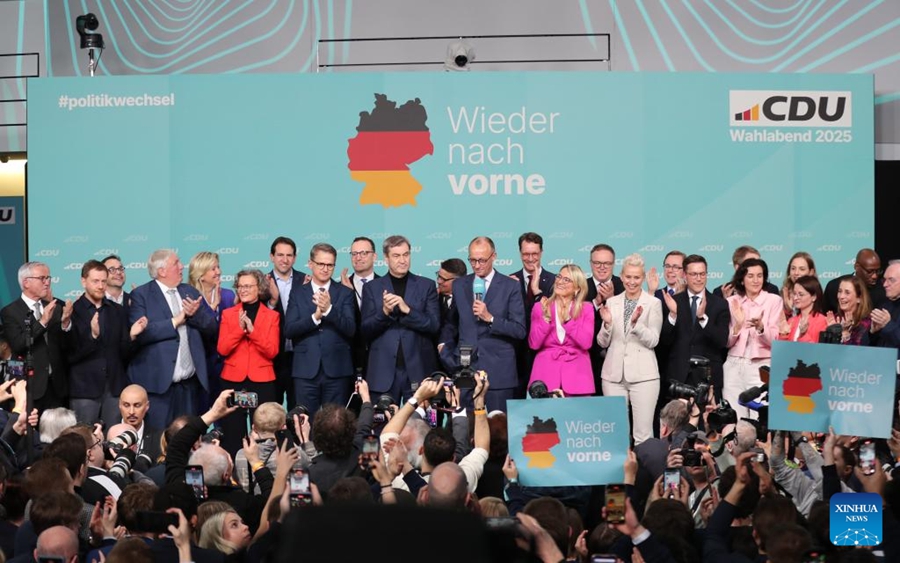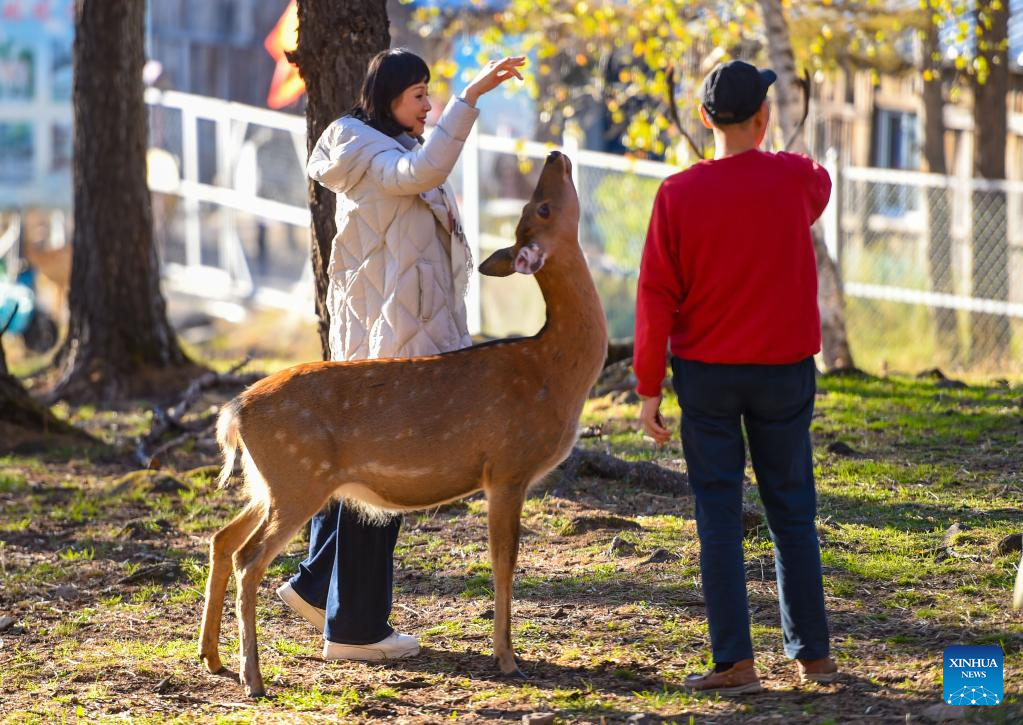
Friedrich Merz (C), chancellor candidate of the Christian Democratic Union (CDU) and the Christian Social Union (CSU), is congratulated as the CDU/CSU bloc has taken the lead in the country's 2025 federal election, at the CDU headquarters in Berlin, Germany, Feb. 23, 2025. (Xinhua/Du Zheyu)
BERLIN, Feb. 24 (Xinhua) -- Germany's conservative bloc, the Christian Democratic Union (CDU) and the Christian Social Union (CSU), has taken the lead in the country's 2025 federal election, preliminary results have showed.
The election will determine the composition of the next Bundestag, or the lower house of the parliament.
CDU/CSU secured 28.6 percent of the vote, followed by the Alternative for Germany (AfD) with 20.8 percent and the Social Democratic Party (SPD) with 16.4 percent, according to the preliminary results released by the Federal Returning Officer in the early hours of Monday.
The Greens trailed in the fourth place with 11.6 percent, ahead of Die Linke with 8.8 percent and the Free Democratic Party (FDP) with 4.3 percent.
The Sahra Wagenknecht Alliance (BSW) fell just short of the threshold for parliamentary representation, receiving 4.972 percent of the vote, according to the Federal Returning Officer.
A party must receive a minimum of 5 percent of the national vote to enter the Bundestag.
Such a result for the BSW would potentially pave the way for a CDU/CSU and SPD coalition to secure a majority.
According to German public broadcaster ARD, voter turnout reached 84 percent, the highest since 1990. The newly elected parliament will select Germany's next chancellor following coalition negotiations among parties.
Friedrich Merz, chancellor candidate of the CDU/CSU, vowed to move swiftly to form a new government.
"Tonight we will celebrate and from tomorrow we start working," Merz said after the vote. "The world out there is not waiting for us."
Admitting the SPD's defeat, German Chancellor Olaf Scholz said that he will remain in office until a new coalition government is formed.
"This is a bitter election result for the Social Democratic Party. It is also an electoral defeat," Scholz said. "I have the responsibility for the election result."
Christian Lindner, who has served as the FDP chairman for over 11 years, announced on a social platform that he will retire from politics after the election.
The FDP withdrew from the ruling coalition last year following disagreements with Scholz's SPD.
The AfD, on the other hand, has approximately doubled its results from the 2021 election. Alice Weidel, co-leader of the AfD, said that her party is now firmly rooted in mainstream society, calling the election the "historically strongest result."
The AfD has expressed willingness to cooperate with the CDU/CSU in the upcoming coalition negotiations. However, Merz has ruled out the possibility of forming a coalition with the AfD.
Cooperation with the AfD has long been considered a taboo by Germany's major political parties.
While acknowledging the challenges of forming a government under current circumstances, Merz said he will strive for the goal of having a government in place by Easter.
On foreign policy, he said that there is the need to strengthen Europe step by step, with the goal of achieving strategic autonomy or independence from the United States. During an appearance on ARD/ZDF's TV program "Berliner Runde," Merz noted that the Trump administration has been "largely indifferent" to the fate of Europe.








